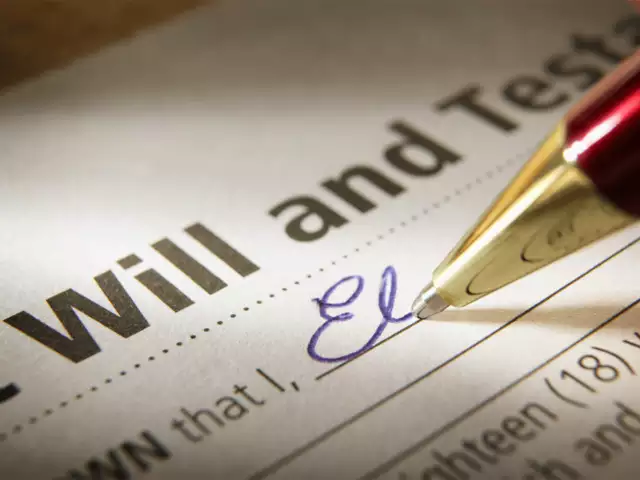A Will is a legal document outlining how you want your assets to be distributed among your close ones after your death. Creating a choice is an important step, like a letter of administration that ensures the wishes of the deceased are carried out without legal issues. However, you must be aware of mistakes that can invalidate the document after you’re gone. By avoiding these errors, you can rest assured that your final wishes will be respected and followed through on.
1. No Proper Witness
Most states demand that two or three adults witness you signing the Will. The majority of states require that these individuals be not only present when you sign the Will but also be able to verify that you were of sound mind at the time.
It is better to refrain from having any beneficiaries or Will’s executor serve as witnesses. The witnesses must sign the Will to attest to their presence. The document could then require notarisation. To ensure you follow all criteria when you execute your Will, check your state’s laws regarding witnesses and Wills.
2. Inadequate Testamentary Power
The mental competency of the testator, or the person who created the Will, is one of the most frequent justifications for contesting a Will. You often must pass a minimum competency exam to make a legally binding will. It entails being aware of
- Your property
- Who are your family members
- Your connection to the recipients you’ve selected
- The meaning and contents of the Will
Someone with dementia or other mental disabilities can still write a legitimate Will. You should consult with an attorney to provide the necessary documents, including a doctor’s report or even a video of yourself, if you’re concerned that someone may try to argue that you lack testamentary competence.
3. Not Abiding by the Will Provisions of Your State
Find out what your state’s laws demand by researching each state’s standards for Wills and the ideal wording that should be utilised. Generally, your Will need to contain the following:
- A declaration that it serves as your last Will
- A detailed list of the recipients
- the title of the executor, who will be in charge of distributing your assets and probating your Will.
4. Unlawful or fraudulent influence
The court will declare your Will invalid if it is determined that it was written under duress or with fraudulent intent. Specific circumstances may be:
- Compelling the testator to leave them an inheritance is a nonfamily carer
- A family member convincing the testator to sign a Will by making it seem like a simple legal document has to be signed.
5. Failing to sign and have a will witnessed
Unless you cannot sign, you must include your signature in your Will. If you are physically unable to sign, most state laws allow you to have someone else sign on your behalf.
If a Will is not properly witnessed or signed, it is void. Typically, two witnesses are required to sign the Will in front of the testator after they have seen the testator sign it. The witnesses usually have to be of a specific age and shouldn’t be entitled to any inheritance under the Will.
6. Multiple Wills
There may be disagreements about which Will is legitimate if you pass away, leaving behind several Wills, and none of your next of kin will inherit them. Make sure to delete the previous copies of your Will if you alter it with a supplement or create a new one from scratch to avoid misunderstanding. Remember to provide them with the most recent Will if you already filed it with a lawyer or the county court in your area. (Not all states permit the registration of a Will during the testator’s lifetime; the filing of choice is typically for safekeeping and storage).
You can also include a clause in your new Will that nullifies any earlier Wills to ensure it is legal and accepted by the court.
7. Contesting a Will
Depending on the situation, getting a Will ruled void may be challenging. When a Will violates state law, such as forged in another person’s handwriting, the probate court may quickly determine that it is void based on construction. However, the person challenging a Will must present evidence to the judge to show that a Will is not legitimate because of a lack of testamentary competence or undue influence. As a result, you will probably require proof or witness testimony concerning the testator’s circumstances and state of mind at the time of writing the Will, which may have been years ago.
It is why challenging a Will may be expensive if you need legal counsel from a probate attorney. It can also prolong the process of settling the estate and distributing inheritances.
8. Lacking the ability to make a Will
Testamentary capacity, or the mental ability required to write a will, is another factor determining Will’s legality. The testator must be aware of the risks and the nature of the instrument, including what a Will is, how it disposes of property, and what assets they hold. If a person feels that a Will was created when they lacked testamentary ability, such as during a hallucination or even a drunken stupor, they may attempt to dispute it.
To Conclude,
Writing a valid Will is an important responsibility that should always be taken seriously. Understanding common mistakes made when creating a Will and avoiding them can ensure your last wishes are respected after your death. Working with an experienced estate attorney can help provide peace of mind knowing everything has been handled properly from start to finish—and that’s truly invaluable.

